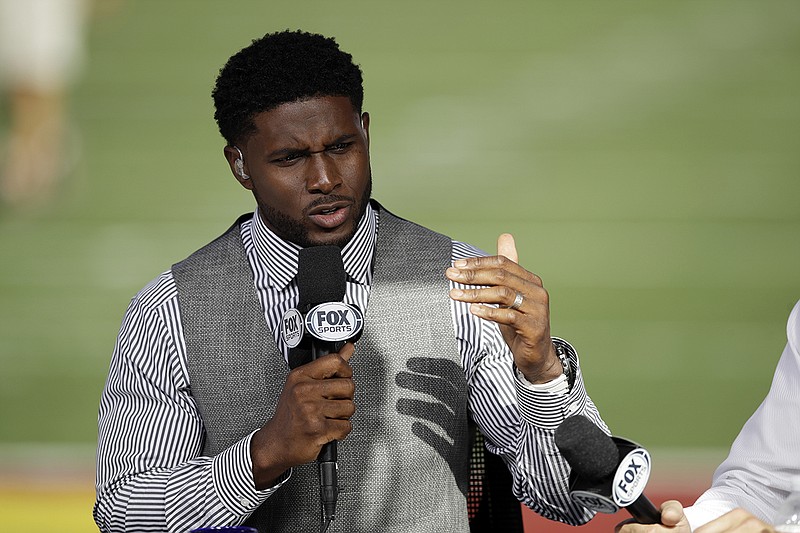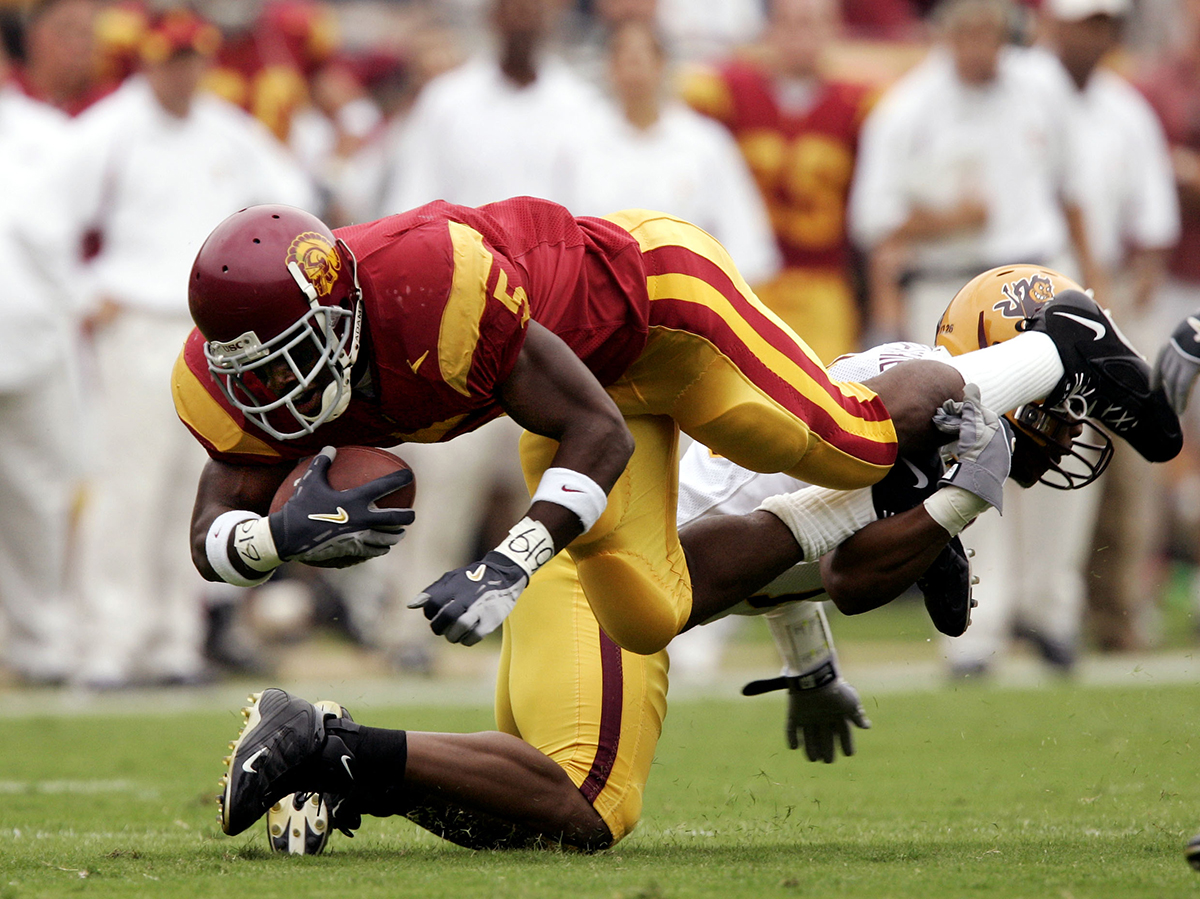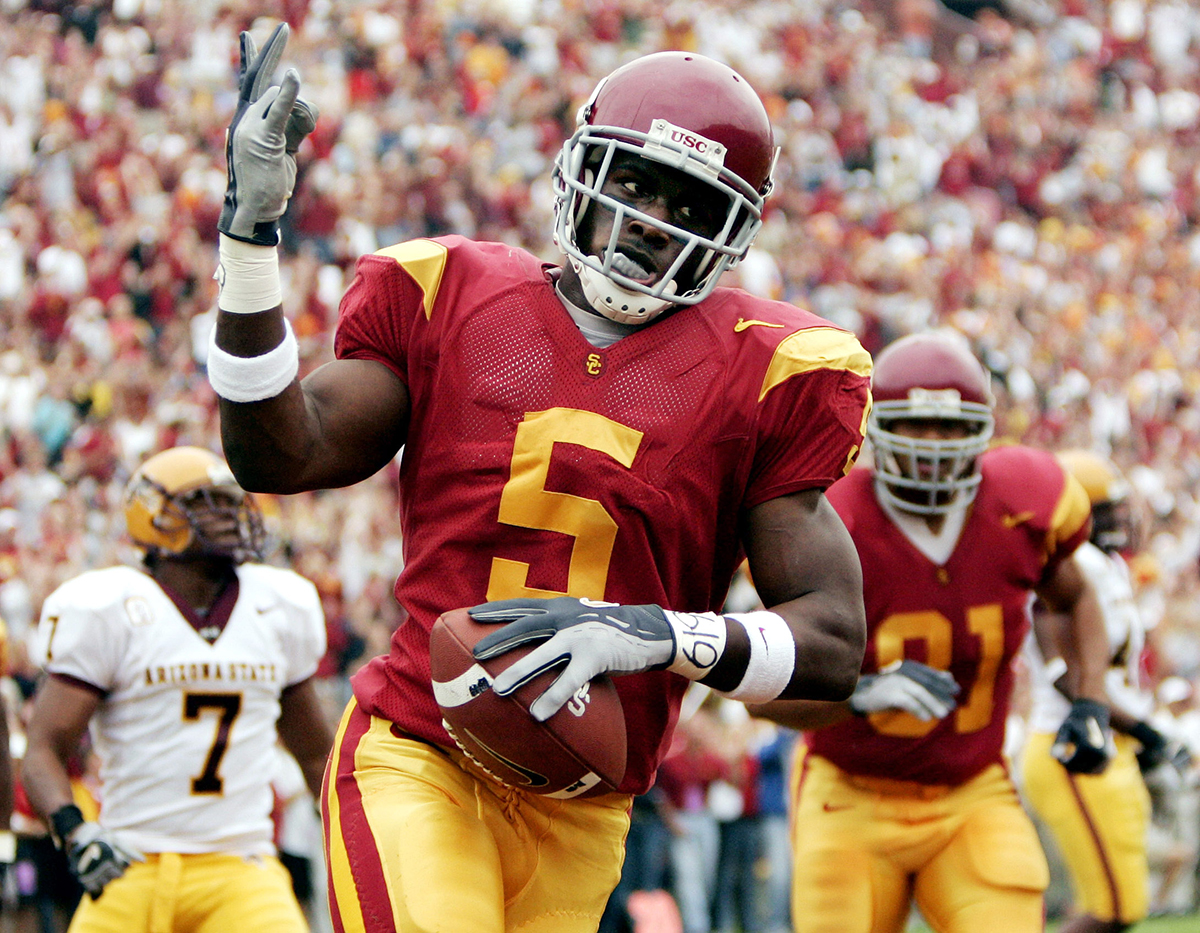You can certainly argue whether Reggie Bush was the right person to talk about the dangers of paying college athletes for their names, images and likenesses during an interview he recently did with Playboy.
Never mind that he shared his thoughts with a men's magazine that has built its brand by objectifying women, which is the last message that needs to be sent to men anywhere, but particularly male college athletes.
Instead, merely focus on Bush weighing in on the proposed payment of these elite college athletes, because he and his family were allegedly paid more than $291,000 during his time at Southern California, which was not only a gross violation of NCAA rules but later caused him to return his 2005 Heisman Trophy before the Heisman Trust could order such an unprecedented move in 2010.
So even if Bush was right in what he told Playboy - "They're about to start paying college athletes. This is something that has never been experienced before, and it's going to destroy some people if their foundation is not in the right place" - he probably wasn't the best person to say it.
Or as the SEC Network's Paul Finebaum told parent company ESPN on Monday, "It's the right message; it's the wrong messenger."
Still, as fellow SEC Network and ESPN analyst and former LSU football great Marcus Spears observed: "Bottom line is, there is no financial literacy in a lot of these places where these athletes come from. There need to be things implemented to teach financial literacy. It has blown my mind for my life that financial literacy is not at the forefront of things we teach education-wise."
Amen, Brother Spears. Amen.
Or as Bush also pointed out in the Playboy article, alluding to the swiftly escalating financial crisis in this country due to the coronavirus pandemic: "It's a nasty world out there, and it's about to get nastier. You're going to really start to see the true colors of a lot of people, and a lot of businesses, too. You're going to see people doing some crazy stuff to make money, because our market is crashing."
The stock market numbers alone would challenge that last statement. Yes, it's down, but it's also up more than 5,000 points in recent weeks. But with unemployment above 14% for the first time since the Great Depression, with small businesses shutting their doors for good every day, there is certainly far more bad economic news than good - and it figures to fall disproportionately on the backs of those who have the least to start with, living paycheck to paycheck, and often beyond their means.
Do athletes seem to throw away money more than others? Possibly. A Sports Illustrated article a few years back estimated 78% of NFL players are either bankrupt or basically broke within two years of retiring and that 60% NBA veterans are broke within five years of retiring.
A 2017 article on TheUndefeated.com also pointed out that such financial failures have plagued the sports world for more than 40 years. Focusing on former Pittsburgh Steelers running back Russell Davis, who played for the 1979 Super Bowl champs, it told of how little money he'd banked when his NFL career ended before he'd planned, even though his average salary was around $50,000 a year at a time when teachers were being paid $15,000 annually.
Said Davis: "Knowing what I know now, (a luxury car) should not have been my first expense. Should it have been a nice car that says I am somebody, or should I make an investment that will help me beyond my playing years?"
Of another mistake too many young athletes make when flush with cash for the first time, Davis said, "In my day Mr. T was big, so you had to have all the gold chains. They are still trapping kids with bling-bling."
What we are trapping our young people with in all walks of life is ignorance. Financial literacy should probably be taught for at least two years of every student's high school stay, starting as a freshman and ending their senior year.
The dangers of credit card debt should be foremost in such a class, but also priorities. Do you really need a 60-inch television? Don't have a child you can't afford. Understand the financial value of education, of how much more a high school graduate earns than a high school dropout. Of how much more a college grad earns than a high school grad.
And should you be fortunate enough to be one of those one-half of one-percenters who somehow make it as a pro athlete or entertainer, whom should you hire to help you manage your money? What are safe and trustworthy investment strategies. Which are likely to leave you broke or bankrupt?
For the rest of our young people who are walking into a terrifying American economy, learning to manage the meager money they'll have is crucial.
Maybe Bush wasn't the best person to bring up the subject, but embracing financial literacy for all our citizens, both young and old, may about to be the second most important subject of our time behind finding a vaccine for COVID-19.
Contact Mark Wiedmer at mwiedmer@timesfreepress.com. Follow him on Twitter @TFPWeeds.



